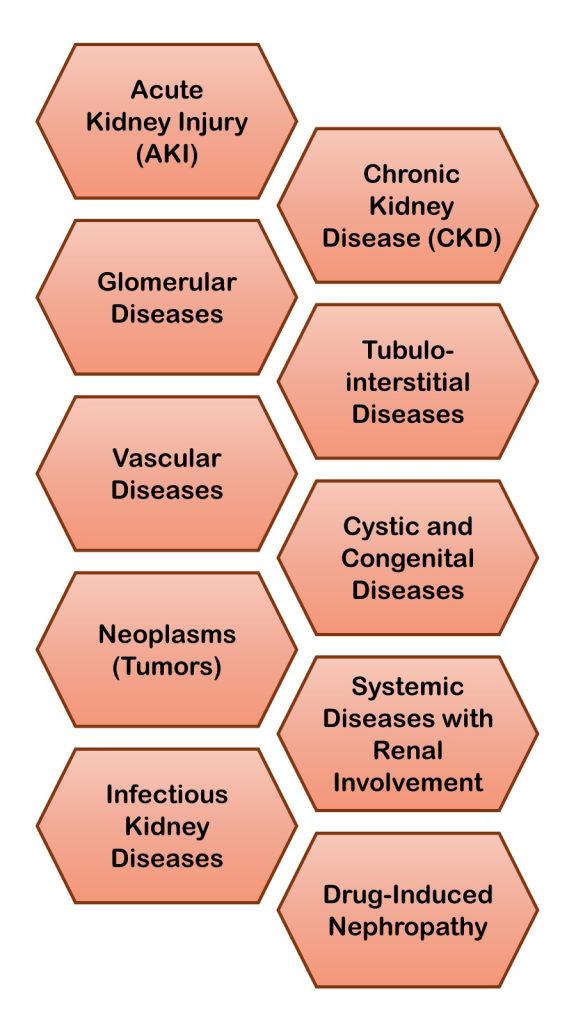
This image categorizes kidney diseases into clear, distinct groups, providing a logical framework for understanding the wide variety of conditions that affect the kidneys.
Acute Kidney Injury (AKI)
Sudden onset, potentially reversible condition where the kidneys rapidly lose their ability to filter waste from the blood.
Chronic Kidney Disease (CKD)
Gradual, progressive loss of kidney function over time, often due to long-term conditions like diabetes or hypertension.
Glomerular Diseases
Diseases affecting the glomeruli, the kidney’s filtering units, which can lead to proteinuria, hematuria, and reduced kidney function.
Tubulointerstitial Diseases
Conditions affecting the kidney tubules and surrounding interstitial tissue, impacting the reabsorption and secretion functions of the kidneys.
Vascular Diseases
Disorders affecting the blood vessels within the kidneys, which can impair blood flow and kidney function, often associated with hypertension.
Cystic and Congenital Diseases
Genetic or developmental abnormalities present at birth or inherited, such as polycystic kidney disease and congenital anomalies of the kidney and urinary tract.
Neoplasms (Tumors)
Benign or malignant growths in the kidneys, including renal cell carcinoma and Wilms’ tumor.
Systemic Diseases with Renal Involvement
Systemic conditions that affect multiple organs, including the kidneys, such as diabetes mellitus and systemic lupus erythematosus.
Infectious Kidney Diseases
Infections that directly affect the kidneys, such as pyelonephritis and tuberculosis of the kidney.
Drug-Induced Nephropathy
Kidney damage caused by medications or toxic substances, leading to nephrotoxicity and impaired kidney function.
Quiz
Please note that our articles are not intended to guide personal health decisions.
This content has been curated by Renes Care. Unauthorized use or reproduction is prohibited.
© Renes Care. All rights reserved.
